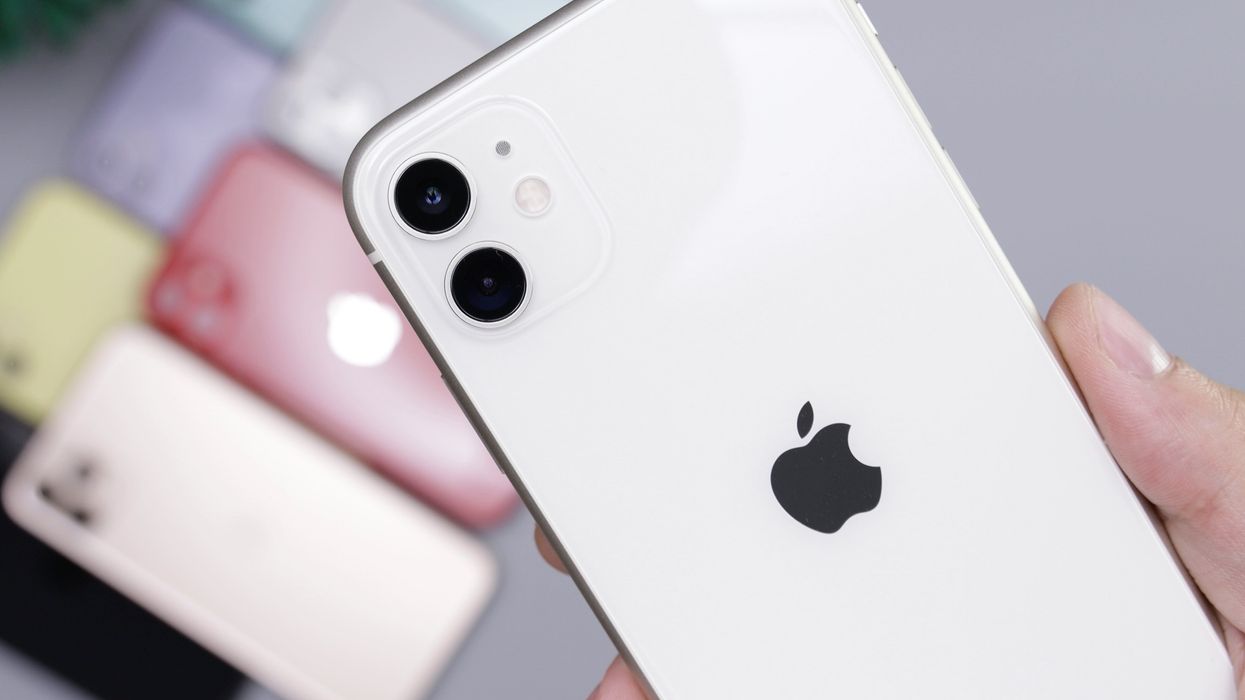iOS 26 ruining your battery life? Apple confirms why its new update could 'impact' your iPhone ...for now

iPhone owners can download and install iOS 26 right now. Just don't expect battery life to be amazing for the first few days
|
Major updates can seriously impact your battery life
Don't Miss
Most Read
Latest
iOS 26 is available to download and install on your iPhone now — as long as it's compatible with the new upgrade.
With the update successfully installed, your iPhone will be treated to a brand-new look called Liquid Glass — part of Apple's "broadest software design update ever", unlock all-new apps like Apple Games, new Apple Intelligence features like real-time translation for AirPods, new immersive three-dimensional viewing experience for your favourite snaps, and much more.
With all of those changes taking place under the bonnet, iPhone owners are likely to see an impact on battery life. As with almost every major iOS release in the autumn, thousands of iPhone owners will experience temporary battery life issues following the update.
With the launch of iOS 26 worldwide, Apple has confirmed that you'll see a drop in battery life on your smartphone. In new advice published on its support pages online, the Californian firm admits: "Immediately after completing an update, particularly a major release, you might notice a temporary impact on battery life and thermal performance.
"This is normal, as your device needs time to complete the setup process in the background, including indexing data and files for search, downloading new assets, and updating apps. New features are exciting and help you get even more out of your Apple product, though some may require additional resources from the device.
"Depending on individual usage, some users may notice a small impact on performance and/or battery life. Apple continually works to optimise these features in software updates to ensure great battery life and a smooth user experience."
Struggling to make it through the day without plugging your iPhone into a charger? At least for the first few days, you've got nothing to worry about.
What is happening under the bonnet of your iPhone? And why does it impact battery life?
First off, your iPhone has to undergo a reindexing process, sorting and categorising data for Spotlight search and other apps. This happens in the background and can take up to 48 hours. For example, the reworked Photos app will need to analyse your photos, any identified faces, and location data to sort everything correctly for you to take advantage of the new tricks.
All of this is happening in the background, so don't be surprised if your iPhone runs a little hotter — and loses battery a little quicker, in the days following the upgrade to iOS 26.
But that's not all.
If you have automatic updates enabled, your iPhone will be downloading and installing updates to dozens of iOS apps, leading to increased background activity. This happens every year, but with the introduction of Liquid Glass — the entirely new design language coming to every Apple operating system with these new updates — this is likely to be even more common this time around.
As developers race to adopt the new appearance in their mobile apps, your iPhone will need to download and install updates to each of the iOS apps stored on your handset. Like the operating system itself, some of these iOS apps will need to reindex.
In other words, there's going to be a lot going on behind-the-scenes on your smartphone in the coming hours.
And finally, you'll probably be using your iPhone more than ever before. Yes, smartphone owners tend to interact more with their devices, exploring new features and customising settings, which naturally consumes more power.
Following complaints about iOS 14 causing terrible battery life, Apple Support acknowledged these processes as the reason, stating on Twitter in response to a disgruntled iPhone owner: "Background activity is usually needed when going to a new iOS for about 48 hrs, including apps downloading updates."
Apple Support no longer operates a social media account on Twitter, now rebranded to X following its acquisition by Elon Musk. However, similar advice now appears on the Apple Support website.
Given these factors, it's advisable to wait at least a week after installing iOS 18 before assessing your iPhone's battery performance. During this period, allow your iPhone to complete its background processes, index all of your saved data (this will take longer if you have an iPhone with more built-in storage and more photos, apps, contacts, and other data), and then settle into a more normal usage pattern.
If your battery life is still terrible this time next week, it could be a genuine issue with the iOS 18 update, a bug that cropped-up during the installation process, or a fault with the hardware. Either way, it could be a good time to plan a visit to your local Apple Store to ask an expert.
Which iPhone models can update to iOS 26?
The new iPhone 17, iPhone 17 Pro and Pro Max, and iPhone Air will come with iOS 26 already installed. The following iPhone models will be able to upgrade to iOS 26 when it is released:
- iPhone 16e
- iPhone 16
- iPhone 16 Plus
- iPhone 16 Pro
- iPhone 16 Pro Max
- iPhone 15
- iPhone 15 Plus
- iPhone 15 Pro
- iPhone 15 Pro Max
- iPhone 14
- iPhone 14 Plus
- iPhone 14 Pro
- iPhone 14 Pro Max
- iPhone 13
- iPhone 13 mini
- iPhone 13 Pro
- iPhone 13 Pro Max
- iPhone 12
- iPhone 12 mini
- iPhone 12 Pro
- iPhone 12 Pro Max
- iPhone 11
- iPhone 11 Pro
- iPhone 11 Pro Max
- iPhone SE (2nd generation and later)
Not all features coming in iOS 26 will be accessible on all of these devices. For example, if you're hoping to test out the latest changes in Apple Intelligence, you'll need an iPhone 15 or newer, since these capabilities remain limited to more recent devices.
As much as possible, Apple Intelligence attempts to run on-device, so you'll need one of Apple's latest processors to be able to handle those tasks. However, three iPhone models can't download the free upgrade:
- iPhone XS
- iPhone XS Max
- iPhone XR
iPhone XS and XS Max were first released back in September 21, 2018, while iPhone XR followed one month later. That means these smartphones have been able to update to the latest-and-greatest operating system from Apple for the last 7 years. However, iOS 18 will be the final major update you'll receive.
Don't panic, though. If you own one of these iPhone models, it'll continue to work. You'll also continue to receive security updates and critical bug fixes. You just won't be treated to all the new features.
More From GB News










